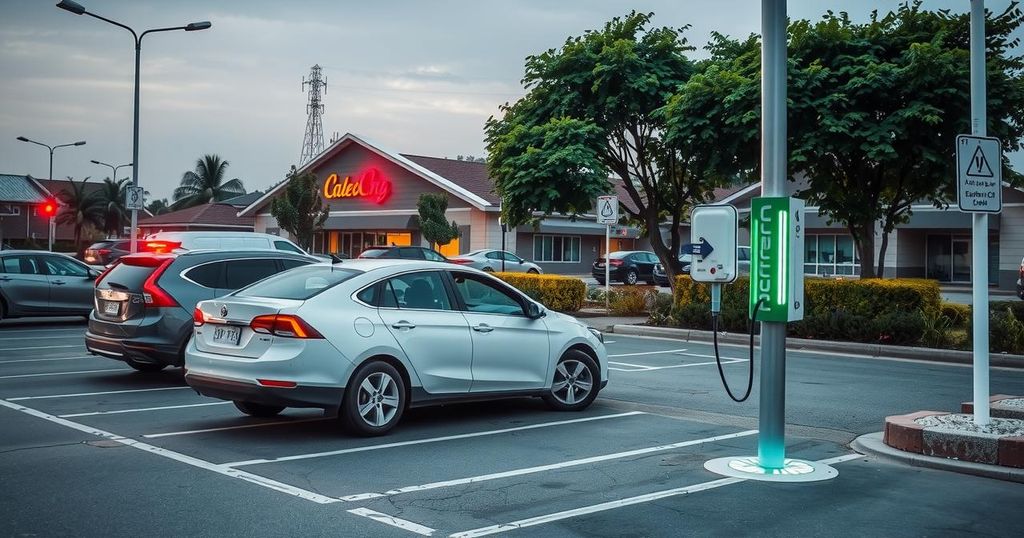Expert Advocates for Electric Vehicle Adoption to Transform Nigeria’s Transportation System

Sunday Aluko, a Nigerian automotive expert, advocates for Nigeria to embrace electric vehicles to reduce reliance on imported fuel and improve transportation efficiency. He highlights the urgent need for reforms in energy, transportation, and manufacturing sectors, and calls for government incentives and infrastructure development to support this transition. Aluko emphasizes that strategic partnerships and innovative solutions are crucial for positioning Nigeria as a leader in sustainable transportation in Africa.
Sunday Aluko, a Nigerian expert specializing in the automotive manufacturing sector based in the United States, has advocated for Nigeria to adopt electric vehicles (EVs) to significantly lessen its dependence on imported fuel and transform its transportation system. He emphasized the pressing necessity for comprehensive reforms within Nigeria’s energy, transportation, and vehicle manufacturing industries to facilitate the transition to electric mobility.
During a recent conversation, Aluko pointed out that persistent challenges such as rising fuel costs, recurring fuel shortages, and theft necessitate the shift towards environmentally friendly electric vehicles. His research reveals that embracing EVs could provide a pivotal solution to Nigeria’s energy and transportation challenges. The expert argues that prioritizing electric vehicle adoption and developing supporting infrastructure is crucial for addressing environmental concerns, diminishing fuel reliance, and stimulating economic growth.
Nevertheless, Aluko highlighted that significant infrastructure deficits—such as insufficient charging stations—hinder the widespread adoption of electric vehicles. He urged the Nigerian government to implement incentives, including reduced import duties on electric vehicles and tax breaks for manufacturers, to foster this transition. “This situation underscores the importance of creating a favorable environment for electric vehicle adoption. Without the right policies and infrastructure, the transition will remain a distant goal,” he stated.
Additionally, Aluko advocates for collaboration with international electric vehicle manufacturers, which would accelerate local production, reduce costs, and create job opportunities within the automotive sector. With a vision of establishing Nigeria as a leader in eco-friendly mobility solutions in Africa, he noted, “I am particularly focused on enabling Nigeria to lead in green mobility solutions in Africa. The shift to electric vehicles is not just an environmental necessity; it’s an economic opportunity.”
He further underscored the importance of innovative initiatives to promote electric vehicle adoption, including the deployment of solar-powered charging stations and making financing options accessible to consumers. He believes that these strategies represent essential initial steps towards mitigating fuel dependency and positioning Nigeria as a frontrunner in sustainable transportation in Africa. Aluko concluded, “With the right policies, infrastructure, and public awareness, Nigeria can transition to electric vehicles, creating a future of economic growth, environmental sustainability, and energy independence.”
The discussion about electric vehicles in Nigeria stems from the dual challenge of energy dependence and environmental sustainability. As a country with a predominantly fossil fuel-based energy sector, Nigeria faces significant hurdles like fuel inflation, shortages, and theft. These issues have led experts to explore alternative solutions, such as electric vehicles, which can help alleviate carbon emissions and lessen fuel imports. The potential benefits of electric mobility not only include improving air quality but also enhancing economic prospects through local manufacturing and infrastructure development, which can catalyze job creation.
In summary, the transition to electric vehicles in Nigeria presents a viable pathway to reduce dependency on imported fuel while addressing environmental challenges. Expert Sunday Aluko emphasizes the need for strategic government support through infrastructure development and incentives for manufacturers. Collaborative efforts with global players could fast-track local production while boosting public awareness. If executed effectively, these strategies may position Nigeria as a leader in sustainable transportation within Africa, fostering both economic growth and ecological preservation.
Original Source: punchng.com




